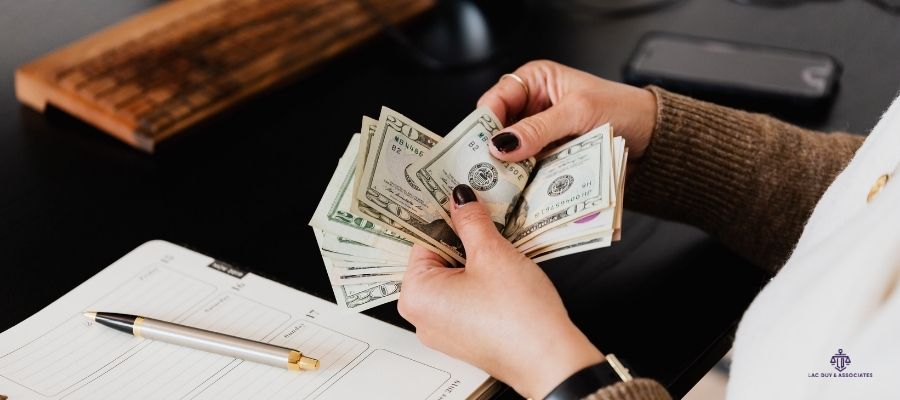
What Is Bad Debt? Methods of Bad Debt Recovery
The problem of bad debt is becoming more and more common in Vietnam. So what is bad debt? How to recover bad debt? Lac Duy & Associates will analyze legal issues related to this matter.
What is bad debt?
Being unpaid (debt repayment) financial obligations of individuals, organizations or legal entities to credit institutions (including banks, financial institutions, credit institutions …) after a specified [quantitative] period, or it is a [qualitative] weak debt / obligation that is unlikely to be able to repay / repay the debt.
In addition, Article 4 of the National Assembly’s Resolution 42/2017 / QH14 dated June 21, 2017, providing for the piloting of bad debt handling by credit institutions (“Resolution 42/2017 /QH14“) and Article 1 of the Appendix attached to the Resolution 42/2017 / QH14, the bad debts include:
- A debt that has arisen and has been considered as a bad debt before August 15, 2017;
- A debt that has arisen before August 15, 2017 and has been considered as a bad debt during the effective period of the Resolution.
- A bad debt prescribed in this resolution refers to: debts that have been recording on and off the balance sheet of credit institutions and identified as prescribed Articles 2, 3, 4, and 5 of this Appendix; bad debts that the bad debt purchaser/manager has purchased from credit institutions.
How many forms of bad debt recovery are there?

There are different types of debt collection, each with different strengths and limitations. Therefore, depending on the case, it is necessary to have a flexible understanding and application to achieve the best effect.
Currently, there are two popular forms of debt recovery including: “negotiating” debt recovery and “legal” debt recovery.
Debt recovery through negotiation
Negotiated debt collection is a form of debt recovery by the way affecting debtors emotionally and psychologically, but still ensuring a good relationship with customers.
The stages of debt recovery through negotiation include:
Negotiation preparation stage: This phase includes researching documents, evaluating documents, learning about debtors, setting goals and processes for negotiation.
Contact with debtors: Including contacting, calling, emailing, making appointment to work directly with debtors. In most cases, the direct contact with debtors is often lengthy. Therefore, each process of negotiating with debtors is especially important, the person in charge of debt collection needs to have skills to negotiate and understand clearly what should be done in each process. Specifically:
- Negotiate through the emotional and psychological impact: Let the debtor choose the location first. Because, in the first phase of the negotiation process, it is necessary to keep confidential information for debtors as well as to preserve face and reputation for debtors. This is a delicate matter, sometimes the debtor does not want to let relatives, colleagues, friends … know this; Debt collectors ‘attitude should be open, gentle, and hit the debtors’ feelings and self-esteem. Absolutely should not mention the law, do not threaten the debtors;
- Negotiating by influencing third parties: The impact towards face and reputation indirectly is also a fairly effective form, through a third party. The third parties here can be reputable people with debtors, who are influential in dealing with debtors.
- Negotiation by pressure: This measure is often applied in cases where the debtor refuses to cooperate and intentionally does not pay the debt. By putting pressure on the credibility of the debtor through the media, social networks …
Legal debt recovery
This is a form of debt recovery by complying with the provisions of the law. Based on the terms of the contract or other agreements signed between the parties to force the debtor to fulfill their debt repayment obligation.
The recovery of bad debts is done through a lawsuit at a court or arbitration or coordinating with the authorities to force the debtors to fulfill their debt repayment obligations.
The advantages of legal debt collection:
- This is an effectively applied solution, in compliance with legal regulations, helping to recover bad debts, and settle complicated debts.
- This is a measure that will be applied when all attempts to negotiate and persuade fail.
- For debtors who intentionally disperse assets, the legal method of debt collection is the optimal method, bringing the most efficiency.
- Legal debt collection is used to put pressure on debtors by asking authorities to apply measures to restrict some civil rights of creditors, affecting psychology to quickly recover debts.
Each enterprise can collect debt by itself or can use debt collection services from law firms or need to provide legal services related to: debt collection, domestic debt collection collection, international debt collection, bad debt collection, international debt collection, international debt settlement, bad debt collection method, debt settlement dispute, bad debt dispute … or need to find a solicitor bad debt collection, debt collection lawyer of foreign companies, debt recovery lawyer in HCM … You can contact Lac Duy & Associates.
Maybe you are interested:

